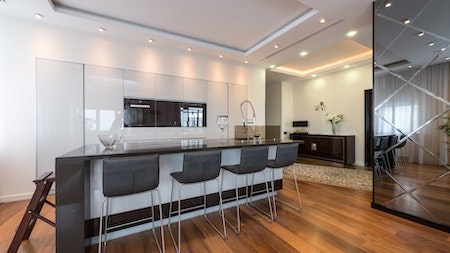The listing price of a property is just one of the costs that need to be covered by buyers, but that is only the start. Regulations and administrative processes all come with a cost, and then there are the ongoing expenses of owning a property.
To be sure there are no nasty surprises, estate agents need to advise prospective buyers of all the costs associated with buying a property – particularly for clients buying their first home.
Finance
Your bank will levy a fee not exceeding R6 037 for initiating and opening a bond.
You can add this fee to your bond amount. However, it means you will also be paying interest on this amount, so you would save by paying the bank fees upfront.
If you have an existing bond on a property and haven’t given the required 90-day notice of intention to cancel the bond, your bondholder is also entitled to charge a penalty fee.
Legal fees
Buying a home involves three types of conveyancing attorneys - bond attorneys, cancellation attorneys and transfer attorneys. In practice, one attorney may perform all three tasks.
A bond attorney will register your bond and prepare the related documents. The fee for this is based on the bond amount to be registered as well as guidelines issued by the Law Society of South Africa and the type of property you are buying. Note that there are additional costs for registering a bond on a sectional title property.
Although fees are negotiable, you can expect to pay around R15 000 for a R500 000 bond and R55 000 for a bond of R5 million. VAT (currently 15%) will also be added to the fee.
If you have a bond on another property you have sold, you will need a bond cancellation attorney to cancel that bond. The average fee for cancelling one mortgage bond ranges from R4 800 to R5 500.
Although the sellers appoint the transfer attorney, the buyers pay them for registering ownership of the property in the buyers’ names at the deeds office. So you can expect to pay around R13 000 plus VAT for a R 500 000 property and R57 000 for a R5 million property. An amount will also be added for items like postage and ensuring Financial Intelligence Centre Act (FICA) compliance.
Transfer fees
The deeds office charges a fee for registering your bond over the title deed. You can expect to pay about R755 for a R500 000 property and R2 350 for a R5 million property. This fee may be paid by your transferring attorney, who will then claim the amount from you.
Transfer duty is a tax that must be paid to the SA Revenue Service (SARS) within six months of the property being transferred into your name at the deeds office. Properties of up to R1 million are exempt from transfer duty, so if your property is valued at R500 000, you will not be liable for this tax.
You can expect to pay transfer duty of R50 250 on a R2 million property and R366 000 on a R5 million property.
Cost of moving
Get quotes from two or three furniture removal companies, as each offer different terms of service. Some companies will want to visit your home to formulate their own inventory of items to be moved, whereas others are happy to quote according to your inventory. Make sure this is an accurate reflection of your belongings so that you don’t have any nasty surprises when the removal firm refuses to move items that aren’t part of the inventory.
If possible, move in mid-month when removal firms charge considerably less than at month-end.
Owners of freehold properties will need to register with the municipality for services, including water, electricity and utilities like sewerage and refuse removal. Municipal deposits vary from one local authority to the next but usually amount to a few thousand rands.
If you use a landline, you will need to ask Telkom to install a new service at the property.
Also, keep in mind the costs of installing fibre, satellite, wifi and internet connections.
Ongoing expenses
Your bank will charge a monthly bond administration fee, usually less than R100.
To have a bond granted, your bank will require that you take out homeowner insurance to cover structural replacement costs in the event of any damage to the property. This is in addition to any household content insurance you may have.
Costs for homeowner insurance vary, so you should shop around for cover that suits your needs. Be aware that you are not obliged to take out the insurance policy offered by your bondholder.
Depending on your credit score and risk assessment, your mortgage loan agreement could specify that you need to take out life cover, which would be an additional expense. Again, shop around for the best cover that suits your needs.
In a freestanding home, you will pay a monthly fee for refuse collection and sewerage and taxes (rates) based on the value of your home.
Owners of sectional title properties or homes in complexes pay a set monthly levy to the body corporate or homeowners association. This covers services like maintenance, refuse collection and use of facilities.
Some suburbs have security systems in place to which you will be required to contribute. You may also decide to sign a contract with an armed response company.
Other expenses you need to budget for include maintenance, repairs and renovations. These will depend on your specific circumstances. However, it is a good plan to set aside regular amounts for maintenance and repairs to make sure your home is always in pristine condition.
Next time you think about buying, make sure you take the costs highlighted above into consideration.
Writer : Sarah-Jane Meyer




